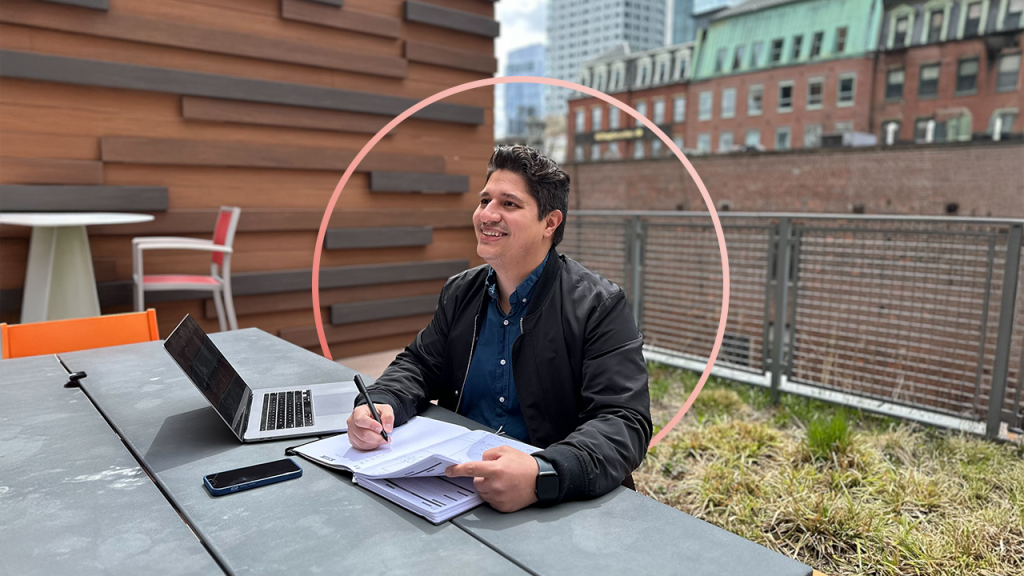“Focus on facts, not emotions.”
I wrote that once, but I’ve come to realize that sometimes saving money is as much about contending with your emotions as it is about budgeting. Here’s what I mean.
I usually have this gnawing guilt anytime I spend a few hours at home doing “nothing.” To be clear, I don’t mean staring at the wall, but doing something that isn’t immediately productive. If I’m not checking things off a to-do list — working, furthering a personal project or just cleaning around the house — I usually feel like I’m wasting time. But during a time when my monthly expenses are heightened, I recently decided to flip that script.
Here’s how I’ve shifted my mindset, taken on a new personal project and found free resources to help make saving money a little bit easier.
How I developed a mindful spending habit
I’ve developed a new mantra: If I’m relaxing at home, that means I’m not out spending money, which in turn means I’m saving money. It’s become surprisingly powerful.
Being consistently productive does have some drawbacks. For me, one of those is a tendency to justify purchases as a reward for working hard. But if your primary goal is to save money, it starts to feel like you’re taking one step forward and two steps back. So, I’ve combined my mantra with a new project: instead of buying new stuff, I’m tackling my media backlog.
You know the one — books bought with great enthusiasm and then shelved for “later,” or video games started and abandoned halfway through. There are even some favorites I’ve been meaning to re-read or replay but never prioritized. So, I’m going back through the media I already own, framing it as a challenge: How much of my own media library could I actually experience before adding anything new?
At first, it was hard. I’d catch myself scrolling through digital storefronts, tempted by shiny new releases and enticing discounts. But even acting on discounts means I’m potentially diverting money away from an emergency savings fund.
Over time, I started to associate revisiting my own media not just with enjoyment, but with saving money. This shift gave me permission to be present, engage in things I already loved, and to do so guilt-free.
It’s also helped me practice mindful spending, which is being intentional and aware of how you spend your money, helping me better align my purchases with my values, needs and long-term goals rather than spending impulsively.
To this end, I’m replaying two role-playing games on a harder difficulty, noticing depth in the story and gameplay I hadn’t picked up on the first time; I’m reading books that were previously collecting dust on my shelf, tackling fiction and non-fiction in tandem; and I’ve stopped buying new playing cards, opting instead to further appreciate the art already in my collection. (I’d like to call myself an amateur magician, but that may be more flattering than the truth.)
Looking at the numbers always helps me contextualize how I spend my time, too. For example, spending $70 on one video game that you play for 80 hours means you spend as little as 88 cents per hour on entertainment. Even a movie ticket at AMC or Regal is about $20 — more than 25 percent of the cost of a single video game.
This little personal project hasn’t just saved me money — it’s helped me reset my mindset. I don’t see time relaxing at home as wasted anymore. If I’m immersed in a good story or wrapped up in a game I already own, that’s time well spent. It’s entertainment without the buyer’s remorse.
And the best part? My wishlist might still be growing, but so is my sense of contentment — and that’s a trade-off I’ll take any day.
Five ways to spend time at home without shelling out money
You don’t need an established library large enough to make Belle from “Beauty and the Beast” jealous in order to save money at home. There’s a certain joy to finding free activities to do at home or outside. If you’re looking to expand your horizons, here are some ideas, activities and resources you might consider.
1. Use your local library
First, let me introduce you to an antique concept: your local library. It’s one of the most underrated resources out there. Besides the obvious — free books — many libraries also offer DVDs, magazines, board and video games, music, and even free or discounted passes to local museums. And if you have kids, libraries may even have tools or craft kits available to borrow.
2. Download the Libby app
Libby is a free app that connects to your library card and lets you borrow e-books, audiobooks and digital magazines straight to your phone, tablet or e-reader through your local library. It’s perfect for anyone trying to cut back on book purchases while still working through a solid reading list. You can even place holds for popular books and get notified when the book is digitally available.
3. Free online resources and classes
From YouTube tutorials to free online courses from platforms like Khan Academy, and maybe even your local library’s website, there’s a ton of high-quality educational content online. Whether you want to learn a language, start drawing or brush up on Photoshop, there’s something online for everyone.
Learn more: 8 ways to get free financial advice
4. Host a “no-spend” game night or movie marathon
Dig out your favorite board games or stream a themed movie marathon using subscriptions you already pay for (or those free movies from the library). Invite friends over for the event and make it a potluck or BYOS (bring your own snacks).
There are also tons of popular free-to-play games available for your gaming console that pit you against other online players, including Overwatch 2 and Marvel Rivals, making these titles perfect for a virtual game night with your pals.
Learn more: How a no-spend challenge can save you money
5. Get creative in the kitchen with what you already have
Before you buy groceries, you might consider a “pantry challenge” worthy of a Try Guys YouTube video. Use up what’s in your cabinets or freezer and see how many meals you can stretch. You might also consider researching low-cost recipes with seasonal ingredients for a great meal at home.
Bottom line
Ultimately, spending time at home doesn’t have to feel restrictive. With the right mindset and some good resources, it can actually feel liberating — and really satisfying — to enjoy what you already have, or what you can find for free. Consider putting all of that extra cash into a high-yield savings account or certificate of deposit (CD) to maximize your savings.
Read the full article here









